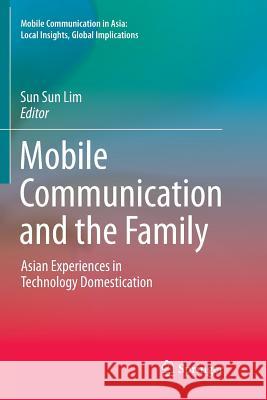Mobile Communication and the Family » książka
topmenu
Mobile Communication and the Family
ISBN-13: 9789402413502 / Angielski / Miękka / 2018 / 187 str.
Kategorie:
Kategorie BISAC:
Wydawca:
Springer
Seria wydawnicza:
Język:
Angielski
ISBN-13:
9789402413502
Rok wydania:
2018
Wydanie:
Softcover Repri
Ilość stron:
187
Waga:
0.29 kg
Wymiary:
23.39 x 15.6 x 1.09
Oprawa:
Miękka
Wolumenów:
01
Dodatkowe informacje:
Wydanie ilustrowane











